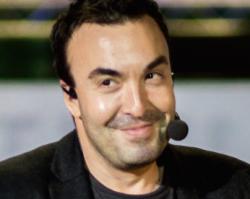Expert Info from Dan Abrahams on How To Be Great Soccer Parents
Global sports psychologist and author specializing in soccer, Dan Abrahams is based in England and has helped hundreds of professional soccer players – many of them who play in the English Premier League (EPL). Players from Crystal Palace, QPR, Fulham, and West Ham United among other clubs have benefited from Abrahams insights and advice.
As a regular columnist for SoccerToday, Abrahams wants to help youth soccer coaches and players reach their highest levels of development. Abrahams also wants to help soccer parents understand what it takes to be successful at every level of this highly competitive field of dreams.

Parenting your Soccer Child Part III for players age 16-19 years old
Youth Soccer News: So your soccer-loving son or daughter is now aged between 16 and 19. They’re growing up and life is changing pretty fast. He or she is no longer a child but a late teen with loads of pressures hitting them from many different directions. Exam pressure, relationship turmoil, and concerns for the future add up to a vicious cocktail of stress that can impede progress and performance in soccer. Life can be tough!
Perhaps they’re playing at a U.S. Soccer Development Academy or maybe they are on a High School soccer team with aspirations of playing collegiate soccer. Perhaps they are very serious about their game or they just play for fun — with an eye on how good they can get.

With your child at this age, it might feel that your influence is gently slipping away. They no longer seek your guidance and perhaps need less reassurance from mom or dad than before (perhaps!) But you can still positively influence your offspring’s enjoyment and development in the game. You can still be an active and successful soccer mom or dad. Trust me, they still want to hear your voice. They still want those wise words (even if sometimes they say they don’t!)
So how can you be a wise soccer parent of an older teen?
Perhaps the key word at this age is this: facilitation. This might sound a little clinical, but it’s a great time to see yourself as a facilitator of their soccer.
How? Ask great questions. Not any old questions, like, “How did it go today” but clever, cunning questions that get them thinking and that help their brain point toward what they want — rather than what they don’t want!
Do you want some examples? Here you are:
- What went well today?
- What needs to go better next match?
- Give me a mark out of 10 today for your performance? A five…cool…how come so high? What DID go well?
- How can you turn your 5 into a 6/10 next time?
- Is there anything you need to start incorporating into your preparation?
- Tell me about your best games … can you use some clues from that game for your next match?
Questions, questions, questions.
Questions help them open up great inner images of them at their best and help them become a student of their game.
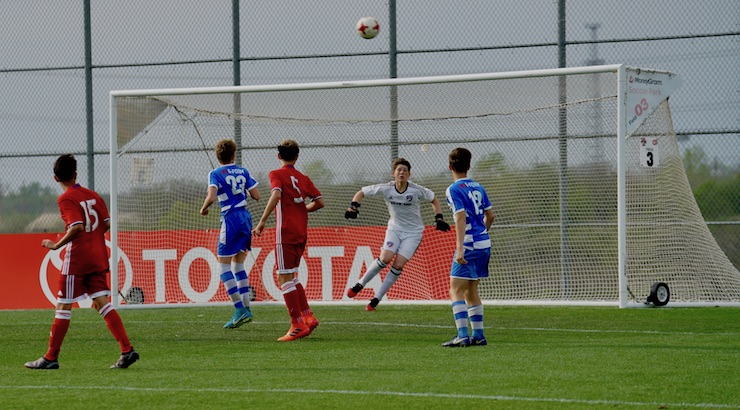
Statements about their game don’t help them do this.
They just reflect to ‘your’ late teen what ‘YOU’ think about their game.
“I think you did this, I think you did that” aren’t that helpful and fail to promote the autonomy you’d no doubt like them to develop as they reach adulthood.
I use the term autonomy because this such an important time of life to start taking charge. In all facets of life, not just soccer.
Questions help your teenager think for themselves.
Questions help teenagers develop self-awareness and personal responsibility. In soccer, terms your questions can help them think deeply about soccer.
All too often players reach the elite level with little sense of themselves, their game or the game. They don’t think, they just do! In fact, they’re scared to over-think. They’re like robots – they’ve been told where to go and what to do. Decision making and creativity are non-existent!
As a parent, you can help them develop these all-important soft skills that help them take control of themselves and their game — and become better players.
If they don’t want to speak about their soccer, let silence rule. You can’t force a 16-year-old to speak, so don’t try. Let him or her have their quiet time of solitude, and give them the power to choose whether they want to share with you.
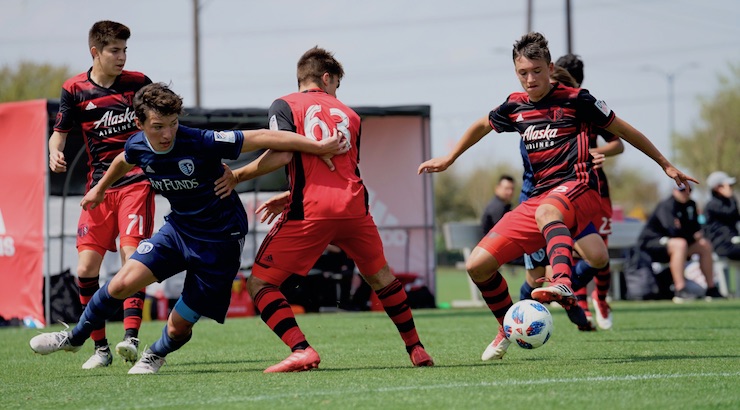
If your late teen is on his or her way to a College Scholarship or a Professional Contract, then the two most pertinent mediators of success are:
- learning and,
- self-management.
The more I work in high-performance sport — like the world of professional soccer in England and around the world, the more I elevate the importance of learning.
Quite simply, for your child to get to where they want to go it’s such an advantage to be a great learner. And learning is so much more than hard work. It’s about quality and effective work. What does this consist of? It requires your soccer-loving teen to set their own personal training goals … and create a plan to work on their goals and look towards achieving them. They should ask themselves questions like: “What do I want to achieve today? What am I going to improve?”
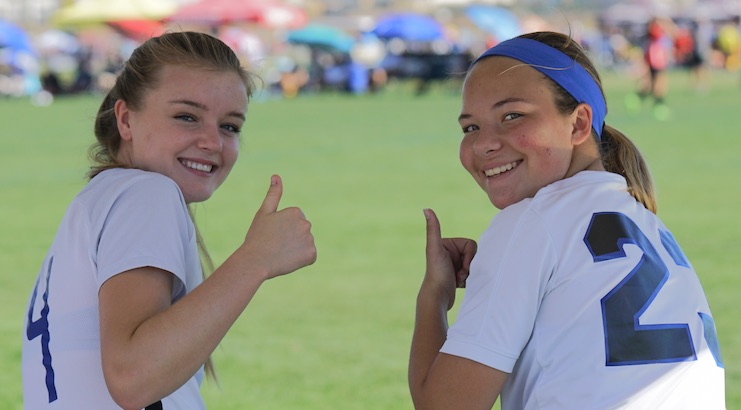
So, as a parent, ask them these questions once a week.
Direct your interest towards helping them become a better learner. “What do you want to get better in training this week? What skill needs to improve? What feedback have you been getting from your coaches? How can you go about improving what they want you to improve?”
Again, facilitate is the word…facilitate their progress.
When they’re out on the training pitch, they need to build the capacity to self-reflect in the moment “How am I doing? What’s going well? What do I need to do better?”
This clearly is a tough thing to be able to do.
In my experience, many aspiring elite soccer players have a passion for training hard, but don’t necessarily have the capacity to train intelligently – to check in with themselves during and between activities.
They allow their coaches to drive their game — their improvement, rather than taking ownership of the different components of their soccer.
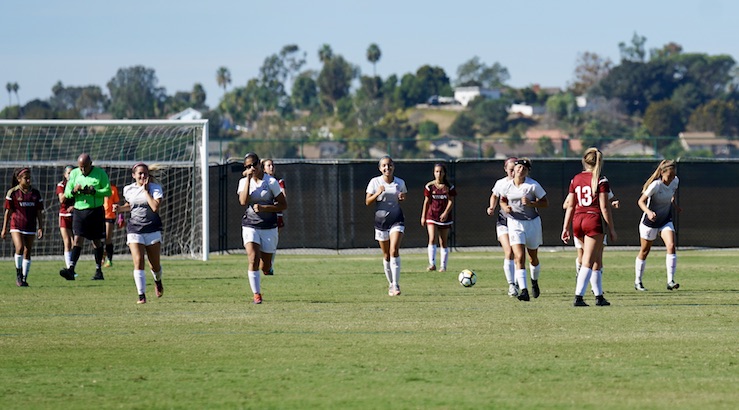
How can you help your soccer player improve their self-reflection during training?
With great difficulty – but some practical things you can do is introduce them to the best literature on the subject. This might include the work of Anders Ericsson — one of the world’s leading experts on expertise and, if I may, one of my own books, Soccer Tough II, details my idea of ‘Intentional Practice’.
As your son or daughter develops their game and reaches the end of their teenage years, those with ambition in the game will feel more and more pressure.
As a parent, your role is different than a coach, but one thing I personally believe you share with a soccer coach is the capacity to stretch and support.
In fact, I always say to coaches that they have two dials – a stretch dial and a support dial. The art of coaching is to turn up and down the volume of the stretch dial at the appropriate times, and up and down the volume of support dial at the right times.
It’s an art and not an exact science.
As a parent of a late teen with ambition, there are times when you might feel that turning down that support dial is necessary. Sometimes you have to stand back to allow them to grow. Sometimes you have to stay silent to enable them to build the capacity to deal with the stressors in their life.
If their coach has turned up that dial of stretch, then sometimes you just have to accept that your teen has to find their way of dealing with their coaches demands. And that’s ok. That’s allowed. It can be difficult to step away as a parent, but they’re at an age when they have to continue to improve their ability to manage their emotions, to perceive negatives in the most helpful way and to re-frame stressors into challenges.
Being a great soccer parent of a child aged between 16 and 19 is tough.
You’ll do some great things and you’ll make some mistakes. You’ll get overly involved on occasion and you’ll distance yourself when perhaps you should have supported more. This is why, above everything, I’ve introduced to you in this three-part article, one of the most important things you can do is to support yourself as a parent.
Strive to be the best you can be — whatever that looks like to you but also be kind to yourself. Above all, enjoy the journey your family takes in soccer.
Related Articles: Dan Abrahams on SoccerToday



